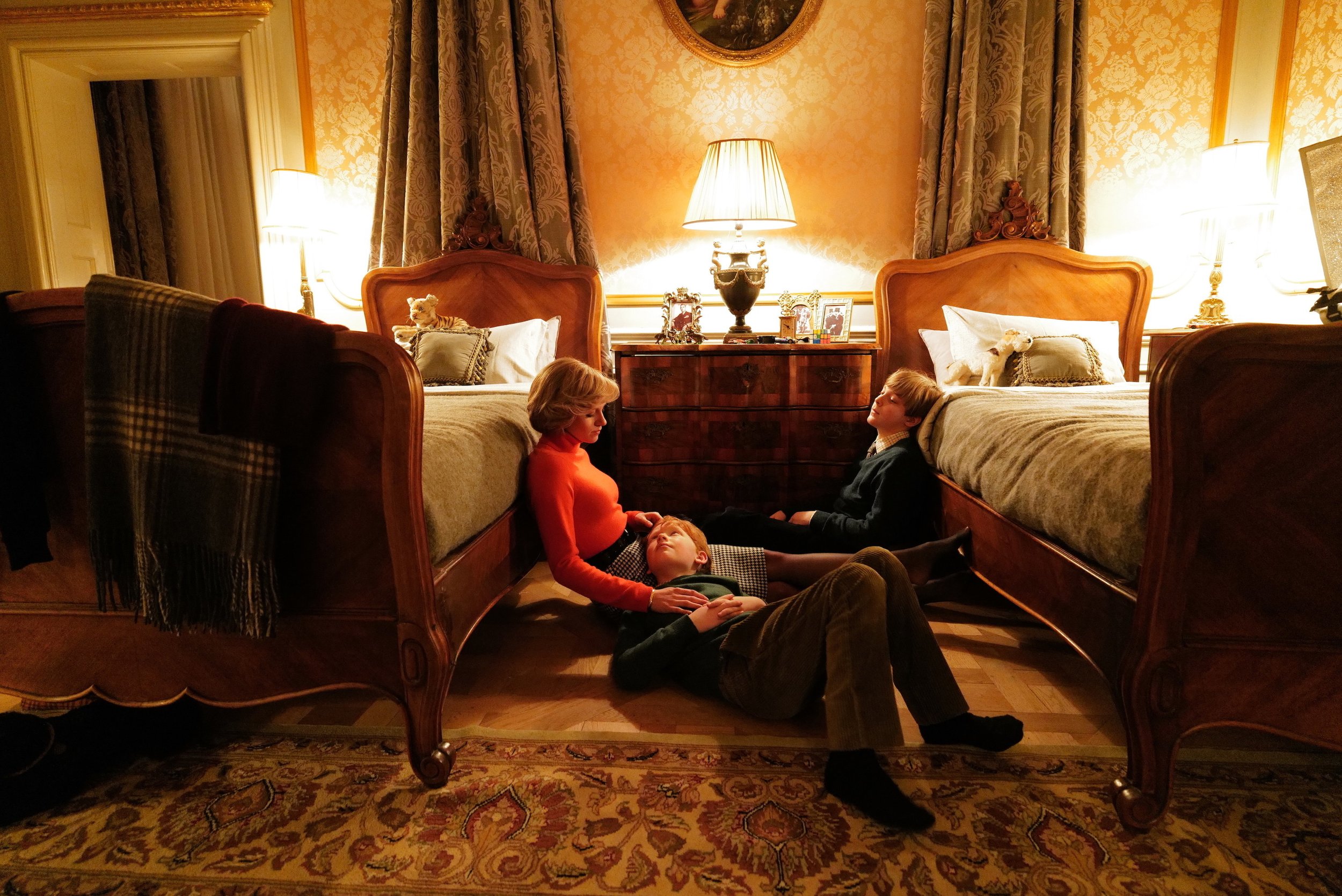Spencer ( dir. Pablo Larraín, 2021) - Review
Fairytales are about finding wonder, rather than finding fault. Their fantastical banquet of princes, princesses, monsters, and knights are meant to be goggled at by childish audiences, more likely to respond to them emotionally than to put them on trial. The negligence of a father who ransoms his daughter to a castle-dwelling Beast is overshadowed by a troupe of dancing kitchen implements; the motives of the fairy godmother pimping her charge out to local royalty are secondary to the flashy carriage she offers in exchange; Goldilocks’ brattiness is counterbalanced by the fascinating domestic rituals of the inhuman household she invades.
Pablo Larraín's approach to the tale of Princess Diana- a “fable based on a true tragedy”- allows him to treat his subject with the perfect degree of storybook nastiness, steering the film between simpering tribute and tasteless hit-piece. Lady Di is a perennially shifting figure in the royal fairytale wheezing out its last gasps in Britain and across the world- as not just Harry and Meghan but Japan’s Princess Mako and Kei Komura have discovered, the public is increasingly unwilling to overlook the inconvenient spoiled quality that comes with the fairytale lifestyle.
The Diana created by Larraín and Kristen Stewart succeeds in capturing her ambiguity in the royal saga, as both tragic folk martyr and insufferable Sloaney prat. Previous stylings of the People’s Princess- whether in her earliest tabloid press mythology, in the widely panned Naomi Watts biopic of 2013, or the edgier context of The Crown- have struggled with her duality as an object of both pity and resentment, the same force which has sustained the legends of princesses from Rapunzel to Marie Antoinette. Rather than trying to rationalise these contradictions, a convincing fairytale keeps its audience wrapped up in their own emotional reactions, accepting the ambiguity of the fantasy world. This leaves a filmmaker with the daunting task of making Diana- a real life martyr of the media- tastefully dislikeable.
In authentically English fashion, Spencer mounts a 2 hour masterclass in passive aggression to drop a savage but ambiguous insult to its subject’s intelligence.
Diana’s struggles, in almost every version of her myth, hinge on her discomfort with the repressed hostility and the stiff-upper-lip omerta surrounding any kind of emotional reaction in the royal household, from her husband’s feelings for Camilla to her own mental health issues. Ironically, although Spencer presents her as the victim in a Gothic horror story where the monsters and ghosts in the castle threaten to kill her, it makes the audience complicit in another version of events, when read through the unspoken British social code which Larraín transmits so expertly.
There are two narratives at work in the film. One is the ghost fable, where we go along with Diana’s “paranoia”: we believe that she is not “cracking up” when she sees Anne Boleyn’s ghost giving her marriage counselling, and that she really does just need love and freedom to be right again.
The other is the unstated alternative- that Diana is the problem. And it’s not strictly unstated either: Larraín executes a really spectacular feat of British passive aggression, essentially managing to call her either thick or crazy- though not in so many words- throughout the film. It’s hard not to burst out cackling at Diana’s constant lack of self-awareness, whether exercising her self-proclaimed “middle-class” passion for KFC, or flouncing around Sandringham in a fit of tragic yet slightly sickening self-obsession.
The film’s sense of weird, dark humour- one element of a fable that places its audience squarely at the intersection of sympathy and irritation- condenses in the central image of Diana as a pheasant. Larraín’s film, and even his Diana herself, constantly tell us that this is an incredibly stupid creature. We see it in an opening shot of roadkill with tyres skimming dangerously close to its skull; we hear it in Diana’s pity for a bird “too stupid” to exist in nature, which exists only to be hunted by the gentry; and we cheer her on when she decides to “take her place among the pheasants”, and break for freedom as her ditzy, ridiculous, yet authentic self.





